 When you are looking to protect yourself and your family, you need to consider life insurance. Life insurance is the financial security net that helps your family get through a rough time. But, when shopping for life insurance coverage there are several factors that can impact your premiums. These factors can include your age and gender. A carrier will also take into consideration not only your health history but your family’s. The carrier may also look at what you do for your career and your hobbies. Your choice in your insurance coverage also affects your premium.
When you are looking to protect yourself and your family, you need to consider life insurance. Life insurance is the financial security net that helps your family get through a rough time. But, when shopping for life insurance coverage there are several factors that can impact your premiums. These factors can include your age and gender. A carrier will also take into consideration not only your health history but your family’s. The carrier may also look at what you do for your career and your hobbies. Your choice in your insurance coverage also affects your premium.
Age
Life insurance coverage relies heavily on the age of the applicant. If you apply for life insurance when you are younger, the cost of the premium is lower. The older you get, the more costly the life insurance becomes because the possibility of health risks increases. Many investors suggest purchasing life insurance for your children when they are small. The lowest cost for life insurance is shortly after birth.
Gender
Another factor is your gender. If you are a female, you have an advantage. A life insurance policy will cost less for a female because studies show that females have a longer life expectancy. With a longer life, females can pay the insurance premiums for a longer period of time. So if a female pays less for life insurance that means that a man will pay higher life insurance premiums. Since a man has a shorter life expectancy, a man will not pay the premiums for as long a period of time as a woman.
Your Health History
When completing the life insurance application, you will need to answer several questions about your health. The insurance carriers are looking for health conditions that could affect your life. These health conditions may include:
- Heart disease
- Diabetes
- High blood pressure
- Cancer
- Cholesterol
- Body metrics and body mass index
When applying for life insurance, the carrier may also require you to have a medical exam. This exam may include blood work and other lab work to make sure everything is in the normal ranges. The medical exam may also provide insight into possible health problems that may occur later on. Your health history does affect your life insurance premiums. The fewer the serious health conditions you have the lower your premiums are likely to be.
Family Health History
Even if you currently do not have any medical conditions, your family health history can provide information on possible health problems that are hereditary. If your family has a history of high blood pressure, you have a higher risk for heart disease. This family health blueprint helps the insurance companies understand the possible health issues that can arise later in life and charge the life insurance premiums accordingly.
Smoking
Insurance carriers will charge a smoker a higher premium because of the additional health risks. If you smoke, you put yourself at risk for lung disease and cancer. These are serious health conditions that may not occur if you did not smoke.
If you were a former smoker, your premiums may still remain high depending upon when you quit. If you recently quit, the carrier may not accept your status as a non-smoker. You may not start seeing a decrease in the premiums until you hit several years of being tobacco free.
Hobbies
Another aspect that insurance companies look at is the hobbies you have. You can have a potentially higher premium if you have hobbies like rock or mountain climbing, skydiving, deep sea diving, flying a plane or racing a car. The higher the risk in the hobby causes the higher premium. The definition of high risk activities may vary by carrier, so you may want to get multiple quotes.
Career Choice
It is not uncommon for your career choice to play a role in the insurance premiums. If you have a career that is high risk, your premiums are higher. These high risk careers may include:
- Racecar driver
- Pilot
- Iron worker
- Police officer
- Firefighter
- Highway construction worker
- Drivers
- Stunt person
These careers have a higher possibility of injury so the premiums on the insured are going to be high.
Insurance Coverage
The coverage you choose will also impact the cost of the coverage. If you choose a policy with a higher value, the effect is an increase in the premium. The direct relationship between the policy value and premium occurs because the more coverage you want the higher the premium. So if you need to control the insurance costs, you should look for a smaller value to reduce the premiums.
No matter what life insurance policy you choose, make sure you get multiple quotes to ensure you are getting the most for your money. Contact our team at Bieritz Insurance for a free quote. We work with many companies in order to find you the right coverage to meet your needs at the right cost.
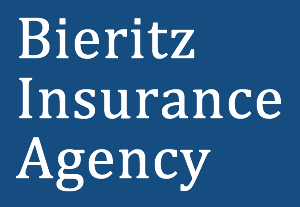
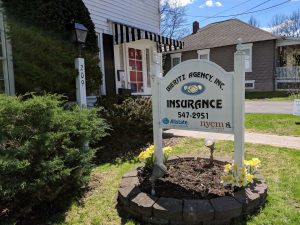

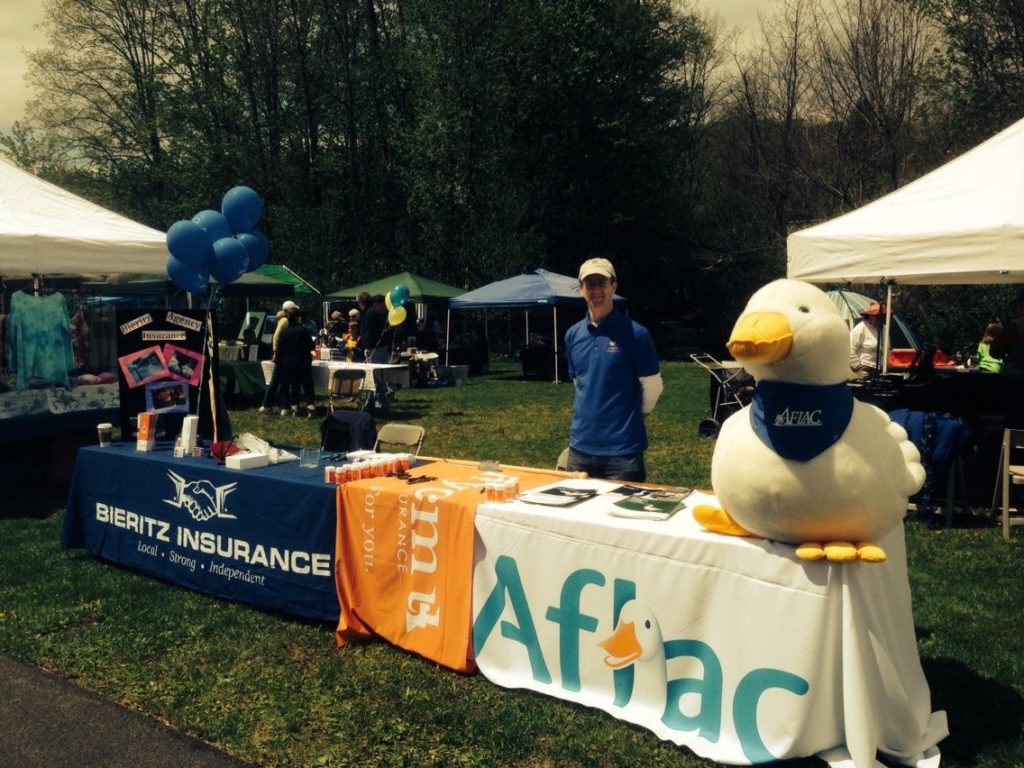


 If you own a business, the thought of a lawsuit threatening your company or an accident destroying your property will most likely fill you with a sense of dread. If you are not insured in the event of a business calamity, this sense of dread is warranted. Most people who are not insured find it difficult to conceptualize a future where their livelihood is at stake, since the threat feels so distant, so improbable. However, if your business is in danger of a liability claim, impeded by a natural disaster, or losing income after an unexpected setback, having the right insurance can be the difference between remaining unscathed and financially secure or closing your doors for good.
If you own a business, the thought of a lawsuit threatening your company or an accident destroying your property will most likely fill you with a sense of dread. If you are not insured in the event of a business calamity, this sense of dread is warranted. Most people who are not insured find it difficult to conceptualize a future where their livelihood is at stake, since the threat feels so distant, so improbable. However, if your business is in danger of a liability claim, impeded by a natural disaster, or losing income after an unexpected setback, having the right insurance can be the difference between remaining unscathed and financially secure or closing your doors for good. 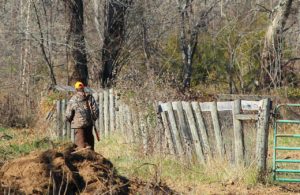 This might be a little far fetched but it is wise to consider the risks when you allow someone to hunt on your property
This might be a little far fetched but it is wise to consider the risks when you allow someone to hunt on your property How do you know if you have a high risk pet that will affect either your ability to get insurance or the cost of your current homeowners policy? Insurance companies consider certain dog breeds to be high risk because these breeds tend to be more aggressive and are therefore deemed to be more dangerous:
How do you know if you have a high risk pet that will affect either your ability to get insurance or the cost of your current homeowners policy? Insurance companies consider certain dog breeds to be high risk because these breeds tend to be more aggressive and are therefore deemed to be more dangerous: It’s always an exciting time when your child graduates high school and begins a new career as a college student. Parents often face a mixture of emotions as they watch their children transition from high school to college. On one hand, your student has worked hard to graduate, and is stepping into a new life. One the other, that life is often away from the comforts and familiar faces of their hometown. Bieritz Insurance understands this is both an exciting and sometimes challenging time in the lives of both the students and the parents, and wants to help add an extra sense of security for both.
It’s always an exciting time when your child graduates high school and begins a new career as a college student. Parents often face a mixture of emotions as they watch their children transition from high school to college. On one hand, your student has worked hard to graduate, and is stepping into a new life. One the other, that life is often away from the comforts and familiar faces of their hometown. Bieritz Insurance understands this is both an exciting and sometimes challenging time in the lives of both the students and the parents, and wants to help add an extra sense of security for both.  Summer. It’s the time of year when the days are long and hot. The kids are out of school and nothing seems like a better idea than hanging out around the pool with your family, hosting backyard bbq parties, and enjoying those extra hours of sunshine. It’s not surprising, then, that many homeowners turn their eyes to their own backyards to contemplate the addition of a pool to their property. Homeowners that already have a pool installed will spend time cleaning and prepping the area in anticipation of summer parties and get togethers. Whether you have a pool or are planning to install one, here are some safety tips to help you enjoy it more and worry less.
Summer. It’s the time of year when the days are long and hot. The kids are out of school and nothing seems like a better idea than hanging out around the pool with your family, hosting backyard bbq parties, and enjoying those extra hours of sunshine. It’s not surprising, then, that many homeowners turn their eyes to their own backyards to contemplate the addition of a pool to their property. Homeowners that already have a pool installed will spend time cleaning and prepping the area in anticipation of summer parties and get togethers. Whether you have a pool or are planning to install one, here are some safety tips to help you enjoy it more and worry less. Life insurance isn’t a sexy topic, but at some point, it is one that most people have to think about. The question of what happens to your family in the event of your death is an important one to consider. This comes about sometimes after significant life status events – perhaps a marriage, the birth of a child or purchasing a home. Life insurance helps protect your loved ones in the event of your death. It can cover your funeral expenses, pay off your mortgage or provide resources to replace your income for a period of time. Two of the more prevalent types of life insurance are term life and whole life. Knowing a bit about the differences between these two types of insurance can help you to decide which might be the best product for your needs.
Life insurance isn’t a sexy topic, but at some point, it is one that most people have to think about. The question of what happens to your family in the event of your death is an important one to consider. This comes about sometimes after significant life status events – perhaps a marriage, the birth of a child or purchasing a home. Life insurance helps protect your loved ones in the event of your death. It can cover your funeral expenses, pay off your mortgage or provide resources to replace your income for a period of time. Two of the more prevalent types of life insurance are term life and whole life. Knowing a bit about the differences between these two types of insurance can help you to decide which might be the best product for your needs.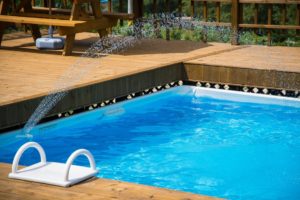 In our little corner of the world, the vacation rental business is booming. While year-round lodging opportunities (hotels, motels, bed and breakfasts, inns, etc.) continue to exist as a mainstay of accommodation options in our area – there are many properties that now cater mostly to the thirteen week summer season – primarily targeted to the baseball camp family audience for weekly rentals. Some of these properties contract with local managers to list and rent their homes as summer vacation rentals and others (more each day) list with one or more of the national rental chains like HomeAway, VRBO (Vacation Rental By Owner) or AirB&B.
In our little corner of the world, the vacation rental business is booming. While year-round lodging opportunities (hotels, motels, bed and breakfasts, inns, etc.) continue to exist as a mainstay of accommodation options in our area – there are many properties that now cater mostly to the thirteen week summer season – primarily targeted to the baseball camp family audience for weekly rentals. Some of these properties contract with local managers to list and rent their homes as summer vacation rentals and others (more each day) list with one or more of the national rental chains like HomeAway, VRBO (Vacation Rental By Owner) or AirB&B.  Many people think of March and April as the time of year for Spring Cleaning. The snow and ice begin to melt away and we start to think about spending more time outdoors. We look at things that we need to to outside in our yards for annual maintenance, and we begin to prepare for tax season – where we look at our financial documents for the year and assess our financial ‘health’. It’s also a great time of year to conduct an annual review of your insurance policies.
Many people think of March and April as the time of year for Spring Cleaning. The snow and ice begin to melt away and we start to think about spending more time outdoors. We look at things that we need to to outside in our yards for annual maintenance, and we begin to prepare for tax season – where we look at our financial documents for the year and assess our financial ‘health’. It’s also a great time of year to conduct an annual review of your insurance policies. Having a new driver in your family can be a nerve-wracking experience. As a parent, your mind somehow jumps to all of the things that can possibly go wrong, and how your newly-permitted driver is yet unequipped to handle different situations in a car. Teaching your teen to drive takes patience and the ability to be objective – you need to provide guidance instead of criticism. We hope the following five tips will help you as you wind your way through these sometimes stressful moments!
Having a new driver in your family can be a nerve-wracking experience. As a parent, your mind somehow jumps to all of the things that can possibly go wrong, and how your newly-permitted driver is yet unequipped to handle different situations in a car. Teaching your teen to drive takes patience and the ability to be objective – you need to provide guidance instead of criticism. We hope the following five tips will help you as you wind your way through these sometimes stressful moments! Travel insurance is insurance that is intended to cover medical expenses, trip cancellation, lost luggage, flight accident and other losses incurred while traveling, either internationally or domestically. (
Travel insurance is insurance that is intended to cover medical expenses, trip cancellation, lost luggage, flight accident and other losses incurred while traveling, either internationally or domestically. (
 Every old house homeowner knows there are time of the year when they find some unexpected house guests. When the weather warms in the spring and summer months, the small trails of ants might appear in your kitchen, and in the fall months, as the weather cools, there are sometimes little creepers that find their way into your pantry.
Every old house homeowner knows there are time of the year when they find some unexpected house guests. When the weather warms in the spring and summer months, the small trails of ants might appear in your kitchen, and in the fall months, as the weather cools, there are sometimes little creepers that find their way into your pantry.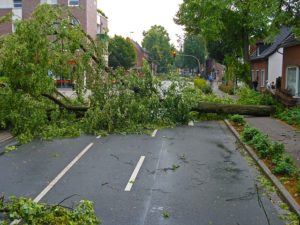 Most of the summer months are dedicated to storm season. In between the days that are perfect for the beach, with blue and yellow skies, are days full of heavy rain, winds, and flooding, with the occasional–for Upstate New York–hailstorm, tornado, and hurricane. These weather conditions, in combination with increased vacationing travel, road work, and presence of motorcycles and bikes on the roads, contribute to a higher average of fatal accidents taking place in the summer rather than the winter. At times like these, we find ourselves wanting to know how we can maximize driving safety. Below, you will find a list of summertime storm hazards, and ways you can alter your driving to better ensure safety in each of them.
Most of the summer months are dedicated to storm season. In between the days that are perfect for the beach, with blue and yellow skies, are days full of heavy rain, winds, and flooding, with the occasional–for Upstate New York–hailstorm, tornado, and hurricane. These weather conditions, in combination with increased vacationing travel, road work, and presence of motorcycles and bikes on the roads, contribute to a higher average of fatal accidents taking place in the summer rather than the winter. At times like these, we find ourselves wanting to know how we can maximize driving safety. Below, you will find a list of summertime storm hazards, and ways you can alter your driving to better ensure safety in each of them. One of the small joys of the summer season for adults and children alike is being able to go swimming. Cooling off in the water offers relief from the heat and humidity. If you are looking for the convenience and benefits of having your own backyard pool, don’t forget to consider the added cost of insurance into your expenses.
One of the small joys of the summer season for adults and children alike is being able to go swimming. Cooling off in the water offers relief from the heat and humidity. If you are looking for the convenience and benefits of having your own backyard pool, don’t forget to consider the added cost of insurance into your expenses.  Unfortunately, leaving home for long periods of time is a risk – there are some who may be looking out for a temporarily empty nest to encroach upon, or a technical time-bomb could erupt. Both could leave you disadvantaged in various ways, depending on your homeowners policy, and both could also reverse the intended effects of vacationing.
Unfortunately, leaving home for long periods of time is a risk – there are some who may be looking out for a temporarily empty nest to encroach upon, or a technical time-bomb could erupt. Both could leave you disadvantaged in various ways, depending on your homeowners policy, and both could also reverse the intended effects of vacationing.